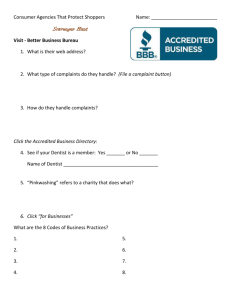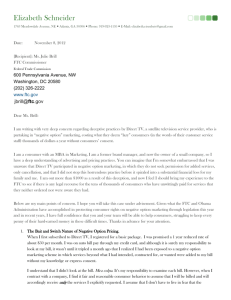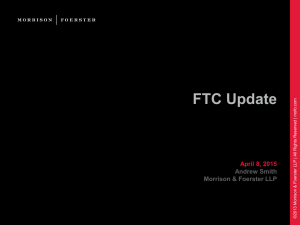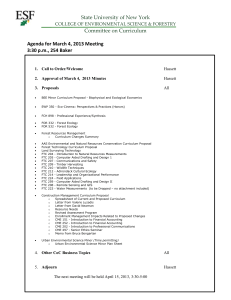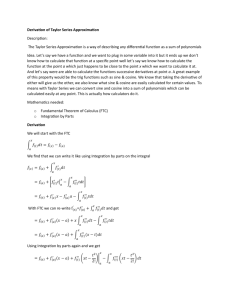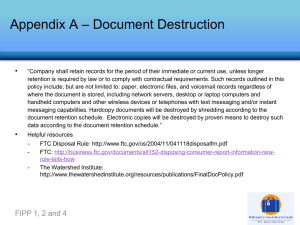TD United Nations Conference
advertisement
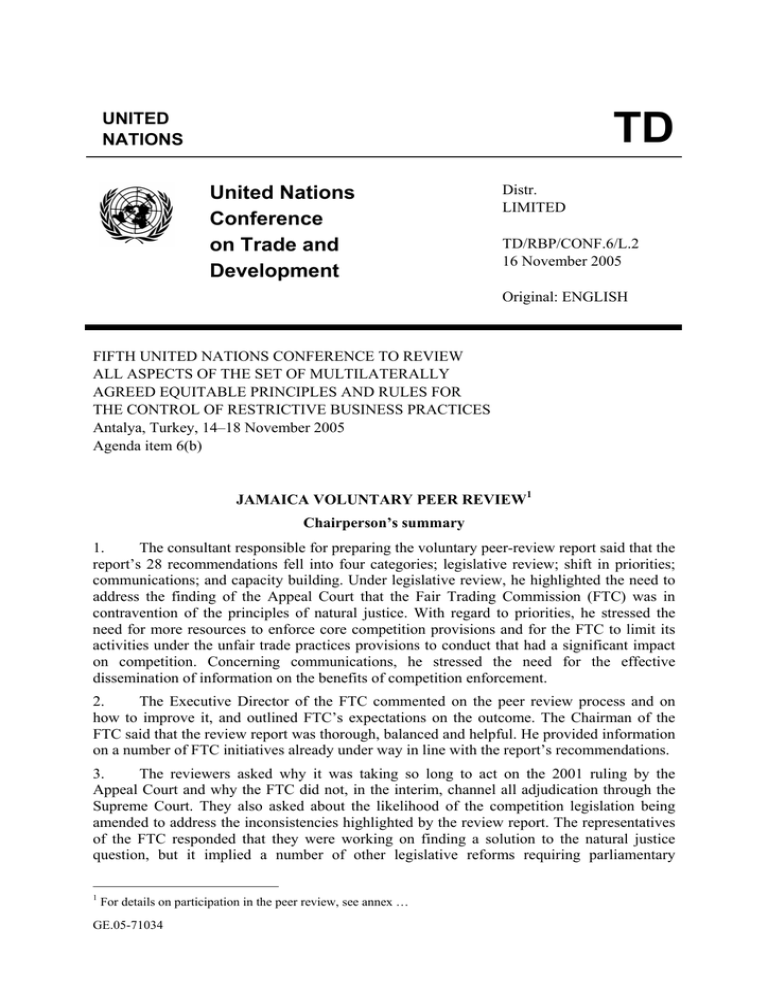
TD UNITED NATIONS United Nations Conference on Trade and Development Distr. LIMITED TD/RBP/CONF.6/L.2 16 November 2005 Original: ENGLISH FIFTH UNITED NATIONS CONFERENCE TO REVIEW ALL ASPECTS OF THE SET OF MULTILATERALLY AGREED EQUITABLE PRINCIPLES AND RULES FOR THE CONTROL OF RESTRICTIVE BUSINESS PRACTICES Antalya, Turkey, 14–18 November 2005 Agenda item 6(b) JAMAICA VOLUNTARY PEER REVIEW1 Chairperson’s summary 1. The consultant responsible for preparing the voluntary peer-review report said that the report’s 28 recommendations fell into four categories; legislative review; shift in priorities; communications; and capacity building. Under legislative review, he highlighted the need to address the finding of the Appeal Court that the Fair Trading Commission (FTC) was in contravention of the principles of natural justice. With regard to priorities, he stressed the need for more resources to enforce core competition provisions and for the FTC to limit its activities under the unfair trade practices provisions to conduct that had a significant impact on competition. Concerning communications, he stressed the need for the effective dissemination of information on the benefits of competition enforcement. 2. The Executive Director of the FTC commented on the peer review process and on how to improve it, and outlined FTC’s expectations on the outcome. The Chairman of the FTC said that the review report was thorough, balanced and helpful. He provided information on a number of FTC initiatives already under way in line with the report’s recommendations. 3. The reviewers asked why it was taking so long to act on the 2001 ruling by the Appeal Court and why the FTC did not, in the interim, channel all adjudication through the Supreme Court. They also asked about the likelihood of the competition legislation being amended to address the inconsistencies highlighted by the review report. The representatives of the FTC responded that they were working on finding a solution to the natural justice question, but it implied a number of other legislative reforms requiring parliamentary 1 For details on participation in the peer review, see annex … GE.05-71034 TD/RBP/CONF.6/L.2 page 2 approval. FTC was aiming to remove all inconsistencies at once, and this had resulted in some delay. It particularly wanted to avoid a separation of adjudicatory and investigatory functions, since that led to a situation where the Commissioners were totally divorced from investigations and met very infrequently. In the interim, aggrieved parties were being encouraged to seek redress directly through the courts where possible. However, this was costly, and some provisions of the Act required the FTC to make a finding before a matter could be referred to the courts. 4. In response to a query, the representatives of the FTC admitted that resource constraints impacted on its image, but the problem was partly mitigated by the strategy of concentrating on consumer matters in order to gain greater visibility. Under current conditions of limited fiscal flexibility, the FTC’s ability to demonstrate that competition enforcement resulted in tangible benefits for the economy would be a key element in convincing the Government to increase its resource allocation. The reviewers asked whether the enactment of a consumer protection act and the subsequent shifting of consumer protection functions to another authority might not damage the FTC’s image and whether merging the two entities might not be worth considering. The representatives of the FTC responded that the FTC retained responsibility for consumer matters of wider market relevance that had an impact on competition, and the division of labour between themselves and the consumer protection body afforded the FTC the opportunity to develop its skills in core competition issues; merging the two entities could be considered in the longer term. 5. In response to a question from the reviewers on the FTC’s jurisdiction over regulated sectors, the representatives of the FTC explained that in their view the 2001 ruling by the Appeal Court did not exclude regulated areas from the purview of the Fair Competition Act (FCA). However, in order to avoid ambiguity, the FCA could be amended to specify that it applied to all sectors and include a requirement for the explicit exemption of regulated sectors where appropriate. Also, future regulatory legislation could follow the approach of the Telecommunications Act, which set out the interface between the FTC and the regulator. 6. The representatives of the FTC then sought the opinion of participants on the merits of developing a merger policy that exempted tradables. The representative of the United Kingdom Office of Fair Trading responded that such a discriminatory approach would be difficult to put into practice and in a situation where merger control was unpopular could further antagonize the business community. A fairly applied, consistent merger regime was preferable and would be unlikely to harm small and medium-sized Jamaican firms. The representatives of the FTC asked if there was any benefit to be gained from setting out a list of specific infringements in addition to general competition rules in a competition law. The representative of the EC responded that indicative rules as encompassed in a competition law could not cover all possible infractions but should be flexible enough to respond to changing conditions in markets, particularly in dynamic sectors. However, setting out a list of specific offences provided useful guidance to the business community and contributed to transparency and voluntary compliance. In this respect, soft law instruments such as guidelines were to be recommended, as had been done in the EC. 7. The JFTC further requested views on requiring informants to provide some minimum amount of information in support of their allegations. The representative of the Swiss competition authority responded that, although such guidelines might be useful, care should be taken not to discourage informants from coming forward. Measures to safeguard the confidentiality of information and the anonymity of the informant were key in gaining the trust of informants. In conclusion, the representatives of the JFTC enquired whether a competition authority could successfully pursue cartel investigations without a leniency TD/RBP/CONF.6/L.2 page 3 programme. The representative of the United States Federal Trade Commission commented that, although a leniency programme had proved the most effective investigatory tool in cartel prosecution, the United States had prosecuted cartels successfully before it introduced a leniency programme. Severe sanctions and sufficient investigatory powers were key. Once the credibility of the authority had been established, a leniency programme could be a very effective tool. 8. In conclusion, the representative of the UNCTAD secretariat announced that UNCTAD had developed a project to assist the FTC to implement the review report’s recommendations and had secured seed funding from the IDB. He invited other development partners to cooperate on the project. The Chairperson encouraged Jamaica to implement the recommendations of the report. *** ** ***

